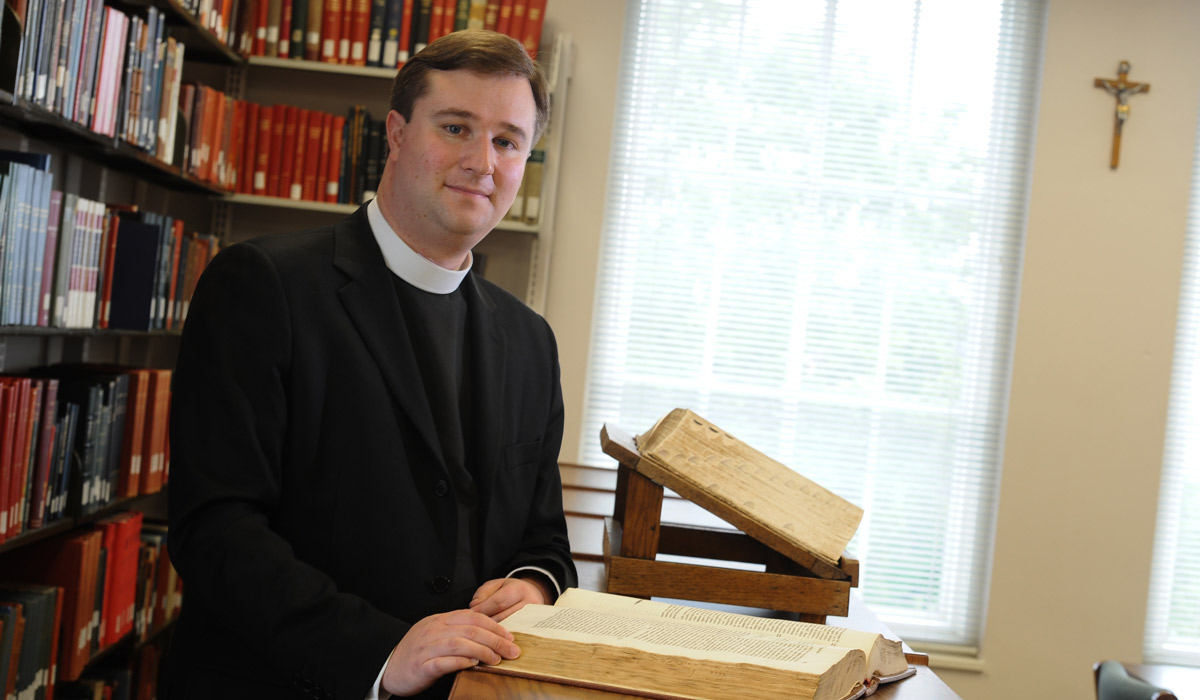

Growing up outside London, Rev. James Bradley has always loved music. He was a chorister at Winchester Cathedral, singing daily services throughout the year, and later majored in music at the University of Bristol in the U.K. Music was one of the avenues that drew Father Bradley eventually to pursue ordination in the Church of England.
In training for this, he earned a degree in theology from the University of Oxford, but the more he studied, the more he came to realize that his beliefs were rooted in the Catholic faith. “I came to see that the fullness of faith — the essence of the Christian life — is found in a relationship with Jesus Christ in the Catholic Church,” says Father Bradley.
After serving as a curate in a Church of England parish in Kent, he was received into the Catholic Church together with 40 parishioners as part of the first personal ordinariate — a structure similar to a diocese, established by Pope Benedict XVI in 2009 for Anglicans who want to become Catholic and retain many of their own traditions.
After ordination in the Catholic Church, Father Bradley completed a master’s degree in canon law from the University of London. With the help of a scholarship from Catholic University’s School of Canon Law, Father Bradley completed the three years of full-time study required for the licentiate and will graduate on May 14. This summer, he will start the doctoral program in canon law at Catholic University.
Father Bradley’s transition from Anglicanism to the Catholic Church became the nexus of his thesis for the licentiate. The thesis centered on the history, development, and purpose of the ordinariate, which has already brought about 250 new Catholic clergy into the Church in Australia, Canada, the U.K., and the United States.
With the licentiate, Father Bradley will be able to fulfill a number of roles. The degree qualifies him to teach at all levels, including at a seminary or university. In addition to his usual duties as a priest, he will soon be able to serve in a variety of administrative roles, dealing with a wide range of matters — from finance, property law, and parish administration, to marriage tribunals and clergy discipline.
“I hope to contribute to the developing life of the ordinariate and the wider Church, however that might be, to be a resource for others, and to be a part of enabling the Church to continue to grow and flourish.”